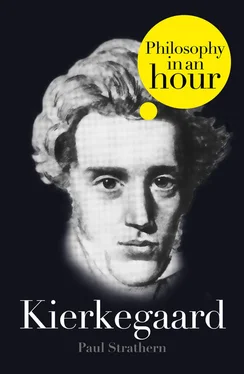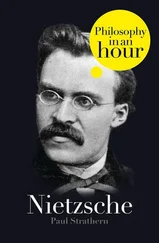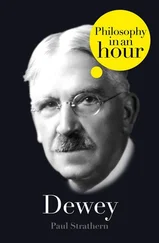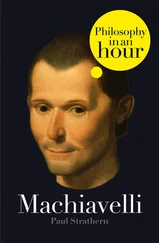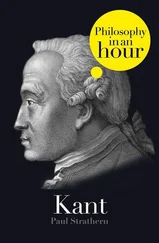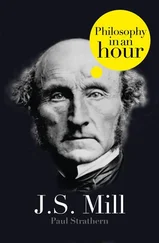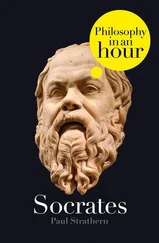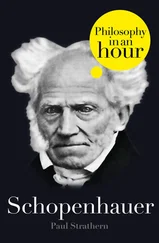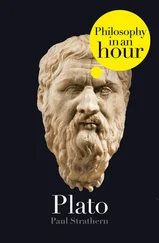It was the German philosopher Kant who eventually devised a suitable dwelling to house this poor defenseless creature. Kant constructed a grandiose mansion in the form of an all-embracing philosophical system based on reason, which accommodated the subjective ‘I’ in magisterial splendor. Kant was followed by Hegel, who built an even more grandiose all-embracing system based on the notion ‘All that is rational is real, and all that is real is rational.’
But somehow both Kant and Hegel had lost sight of the original question. Their systems gave no satisfactory answer to the subjective question: ‘What is existence?’ A rational system presupposes a rational world. It is merely reason’s answers to reason’s questions. The subjective ‘I’ lies beyond reason and is not entirely a part of the world. Kierkegaard understood this. The answer didn’t lie in constructing a perfect system which explained everything. There was a more fundamental problem which prompted questions such as What is existence? What does it mean to exist? It was Kierkegaard who set himself the task of answering these questions.
Kierkegaard’s Life and Works
Søren Aabye Kierkegaard was born in Copenhagen on May 5, 1813, in the same year as the flamboyant German opera composer Richard Wagner. These two archetypical nineteenth-century characters occupy the opposite poles of that century’s genius. Kierkegaard was to become all that Wagner did not, and vice versa. Virtually the only thing they had in common – seemingly indispensable for nineteenth-century genius – was a strain of madness. Kierkegaard’s madness was not a central feature of his psychic makeup (it was his brother’s son who ended up in an insane asylum), but it is nonetheless evident in certain persistent oddities of his behaviour. All his life Kierkegaard was obsessively solitary, and in consequence the few influences upon him took on an exaggerated aspect. By far the greatest influence on the young Kierkegaard was his father, who exhibited a much closer proximity to madness (and would probably have been regarded as insane in a more sophisticated Mediterranean society).
The influence of Kierkegaard’s father was formative. Almost everything that he became was either a direct result of his father’s overbearing influence or in violent reaction against it. There was little casual normality in their relationship.
Kierkegaard senior had been born a serf in the remote heaths of Jutland in northern Denmark. His family belonged to the local priest and worked his fields. This almost certainly accounts for the family name Kierkegaard, which is Danish for ‘churchyard’. By the age of ten the young Kierkegaard senior was out in all weather looking after the sheep. According to one of his sons, ‘He suffered from hunger and cold, or at other times was exposed to the burning rays of the sun, left to himself and the animals, lonely and forlorn.’ He was highly religious, yet he could not understand how God could allow him to suffer so. One day, driven to desperation, he stood on a rock on the barren hillside and solemnly cursed God.
Almost at once, things took a turn for the better. An uncle in Copenhagen sent for young Kierkegaard senior and gave him employment in his woolen goods business. Kierkegaard senior proved an excellent salesman, tramping the highways and byways in all weather to sell stockings and pullovers to countrymen and townsfolk alike. Eventually he had enough money to marry and set up home. When the uncle died, he was left a considerable business. This he continued to build until he was one of the richest merchants in Copenhagen, occasionally even entertaining royalty at his dinner table. The five houses he owned survived the British naval bombardment of 1803, which flattened large areas of the city. Ten years later, when the Danish economy went spectacularly bankrupt, Kierkegaard senior was one of the few to survive, having invested his fortune in gilt-edged securities.
But already the man who had cursed God felt deep within him that he was accursed. His first wife died, and he married his maidservant. Of his seven children, only two survived. Then the second wife died.
Søren Kierkegaard was the youngest child, born when his father was already fifty-six. The years of Søren’s childhood were regularly punctuated by family deaths. Already doom-laden and religion-obsessed by the time Søren was born, Kierkegaard senior became an increasingly depressive tyrant. He retired from business and withdrew to a reclusive life amidst the gloom of the family mansion. He quickly recognised Søren as the most intelligent of his offspring, and Søren became his father’s favourite. In any other family this might have been an enviable position, but not at the Kierkegaards’.
By the age of seven Kierkegaard’s father was teaching him logic after his own fashion. Young Kierkegaard’s statements would be subjected to perverse logical scrutiny, and he would be forced to defend his every assertion.
Relaxation came in the form of extensive foreign travel. This all took place within the confines of his father’s study. Young Kierkegaard would listen while his father painstakingly described the architectural and cultural delights of such faraway places as Dresden, Paris, and Florence. Afterward, young Søren would be encouraged to take a ‘grand tour’ around the room, forced to describe in detail the views he saw – such as the sunburnt hillside of Fiesole above the domes and towers of Florence (each of which had to be named and described).
As a result of this mental child abuse, the already intelligent young Kierkegaard developed a supremely logical mind as well as a superb (if somewhat dry) imagination. Like many a modern travel guide writer, Kierkegaard’s father had never actually seen the faraway romantic spots that he described. His travels had been conducted entirely between the covers of books – but for all this they did not lack in telling authentic detail. In his later philosophy Kierkegaard was to show an uncanny ability to imagine himself in situations (especially biblical and psychological ones) that he had only metaphorically experienced. This skill stems directly from accompanying his father on his armchair travels.
On a deeper level, Kierkegaard senior seems to have wished to overwhelm his son’s mind and impose on it his own blinkered view of the world. Dominant fathers have always enjoyed inflicting the goals they have achieved (or, more commonly, failed to achieve) on their sons, but Kierkegaard senior was different. He felt driven, but he no longer had any goals. He saw himself as accursed, and he wallowed in total despair. It was this driven despair that he wished, consciously or otherwise, to impose upon his son. In his later journals Kierkegaard senior pointedly tells the story of the man who gazed at his son one day and told him, ‘Poor child, you are living in silent despair.’ This would seem to derive from an autobiographical episode (or was possibly a regular refrain).
Not surprisingly, Kierkegaard was a somewhat odd pupil at school. He dressed in buttoned-up old-fashioned clothes and behaved in a buttoned-up old-fashioned manner. His teachers described him as being like ‘a little old man’. He didn’t excel at schoolwork, though he was certainly in a different intellectual class from his fellow pupils. His father had instructed him not to draw attention to his intelligence: he was to place third in his class. Young Søren dutifully obliged. (This must have required even more skill: any budding genius can come in first.)
As Kierkegaard grew older it became plain that his odd appearance was due to more than just his old-fashioned clothes. His body was angular and sticklike, and he seems to have suffered from a spinal disease which gave him a slight hunchback. Never one of the gang, the outsider Kierkegaard inevitably attracted the teasing of his more boisterous schoolmates. He soon learned to defend himself with a sarcastic wit. This sarcasm he then began to use aggressively, provoking other boys with his comments and attracting their bullying. This behaviour trait was to recur throughout Kierkegaard’s life.
Читать дальше
